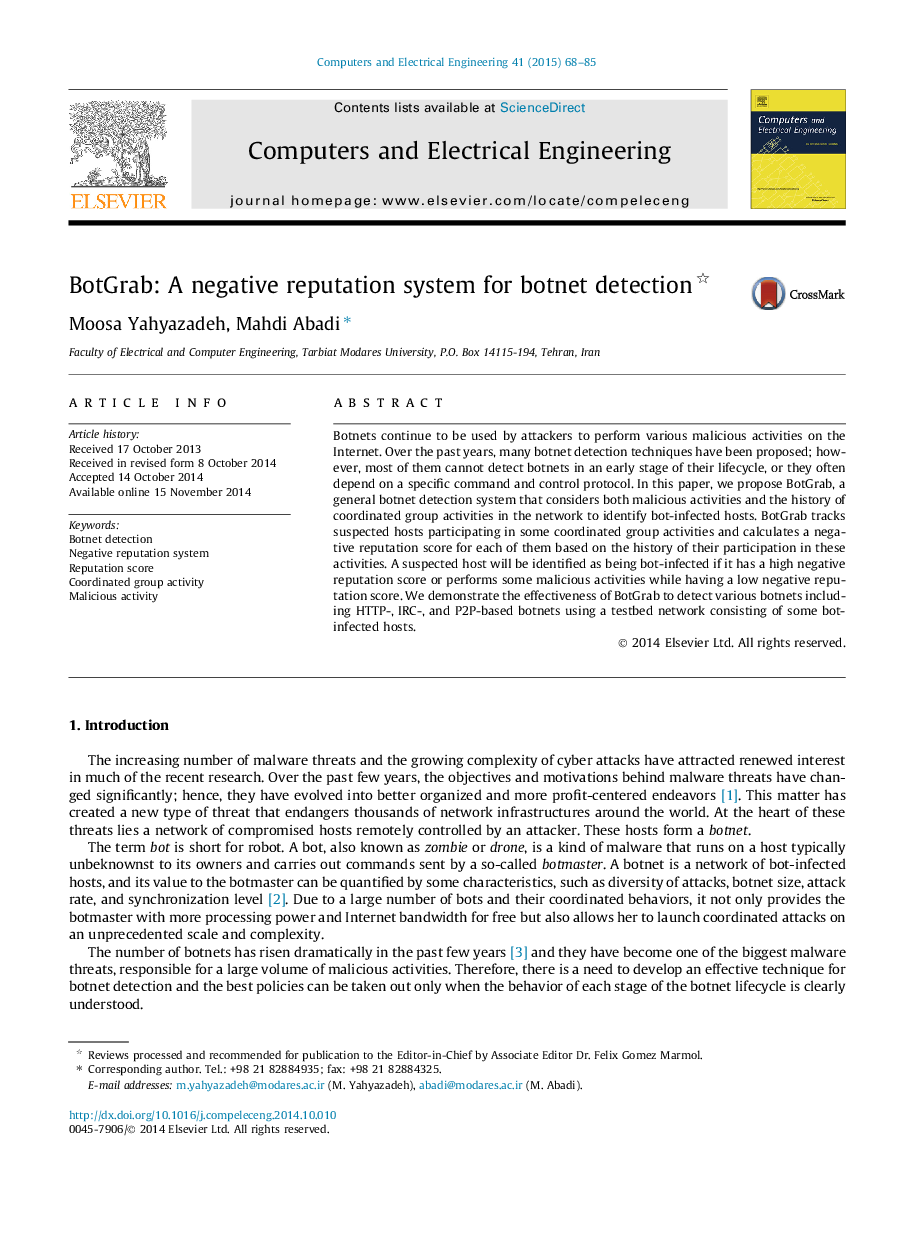| Article ID | Journal | Published Year | Pages | File Type |
|---|---|---|---|---|
| 455295 | Computers & Electrical Engineering | 2015 | 18 Pages |
•A novel negative reputation system is proposed to detect bot-infected hosts.•It considers both malicious activities and history of coordinated group activities.•A proposed online incremental clustering technique facilitates the online learning.•The negative reputation threshold can adjust the sensitivity of the system.•It can successfully detect various botnets with a high DR and a low FAR.
Botnets continue to be used by attackers to perform various malicious activities on the Internet. Over the past years, many botnet detection techniques have been proposed; however, most of them cannot detect botnets in an early stage of their lifecycle, or they often depend on a specific command and control protocol. In this paper, we propose BotGrab, a general botnet detection system that considers both malicious activities and the history of coordinated group activities in the network to identify bot-infected hosts. BotGrab tracks suspected hosts participating in some coordinated group activities and calculates a negative reputation score for each of them based on the history of their participation in these activities. A suspected host will be identified as being bot-infected if it has a high negative reputation score or performs some malicious activities while having a low negative reputation score. We demonstrate the effectiveness of BotGrab to detect various botnets including HTTP-, IRC-, and P2P-based botnets using a testbed network consisting of some bot-infected hosts.
Graphical abstractFigure optionsDownload full-size imageDownload as PowerPoint slide
